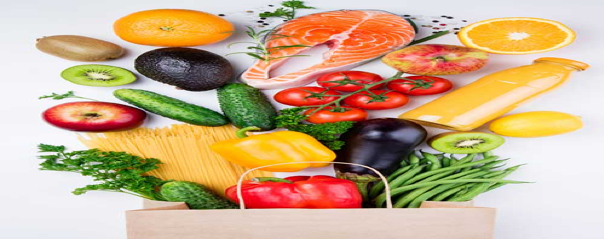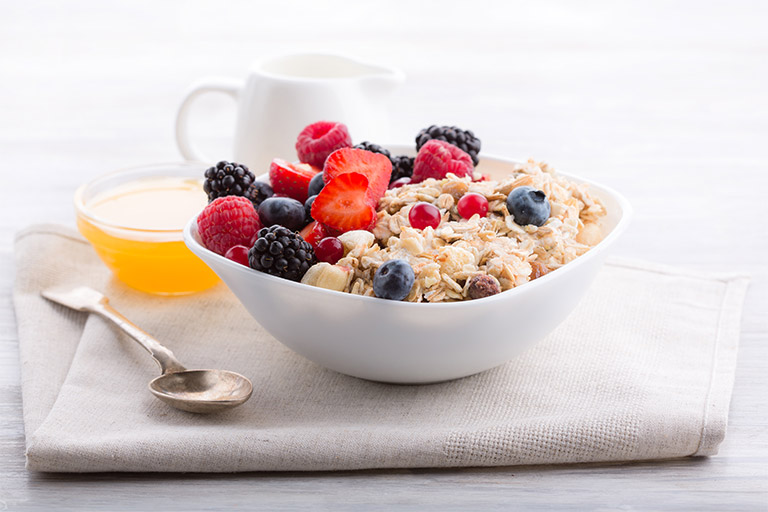Diet for PCOS
1 in 10 women of childbearing age suffers from Polycystic Ovary Syndrome (PCOS). Women with PCOS a have hormonal imbalance and metabolism problems that may affect their overall health and appearance.
What is PCOS?
The commonly used name for Polycystic Ovary Syndrome is PCOS. These days it is a common health problem caused by an imbalance of reproductive hormones. The hormonal imbalance creates problems in the ovaries.
In a healthy menstrual cycle the ovary make the egg that is released every month. In the patient suffering from PCOS, the egg may not develop as it should or it may not be released during ovulation.
PCOS can cause missed or irregular menstrual periods. Irregular periods can lead to
- Infertility (inability to get pregnant). In fact, PCOS is one of the most common causes of infertility in women.
- Development of cysts (small fluid filled sacs) in the ovaries.
Currently, there is no known cause of PCOS. However, there are associations with excess insulin, low grade inflammation, and genetics. While the symptoms include menstrual irregularity, infertility, pregnancy complications, facial hair, acne, darkening of skin on nape of neck, under arms, inner thigh and an increased prevalence of obesity and abdominal obesity.
PCOS & Associated Risks
Besides fertility problems, complications include risk for developing
- Insulin resistance and pre diabetes/diabetes
- High blood pressure
- Abnormal cholesterol and triglyceride level
- Cardiovascular disease
- Endometrial cancer (cancer at the inner lining of the uterus)
- Sleep apnea
Dietary Modification in PCOS

Weight loss is the cornerstone of management of this syndrome. Hence dietary modifications are mandatory. Some simple tips to modify the diet are:
- Mantra of good eating for PCOS should be ‘Protein First’. Protein foods are dals, sprouts, skimmed milk and milk products and non-veg foods like fish, chicken, egg white.
- Including fresh and colorful vegetables in the main meals are good for health i.e. Red (amaranth, beets, tomatoes), Orange (carrot, pumpkin), Green (green leafy vegetables and others), Yellow (lemons), White (ash gourd, bottle gourd) and Purple (brinjal, turnip and yam).
- Choose the right quality and quantity of complex carbohydrates. Choose whole grains like brown rice, whole wheat, millets over refined cereals like maida, suji.
- Eat nuts every day. Nuts like almonds, walnuts, pistachio even peanuts provide good quality fats.
- Choose the right kind of cooking fat. Monounsaturated fats like olive oil, groundnut oil, rice bran oil, mustard oil, canola oil are good fats to cook food in. Limit use of these fats to 3-4 teaspoons/person/day.
- Avoid foods containing trans-fat and saturated fats as they increase insulin resistance. They are present in bakery foods, ready to eat snacks etc.
- Anti-inflammatory agents like turmeric, cinnamon, amla etc. are very important in these diets as PCOS is an inflammatory condition.
Exercise in PCOS
Regular physical activity is essential to women with PCOS. Not only does consistent exercise help with weight management and improve mood, but can help with fertility, lower disease risk along with numerous other health benefits.
Exercise like walking, cycling, swimming or weight training, done at least 5 days a week, can help to control the associated metabolic problems and weight gain.
Disclaimer
The content is for general information purpose only. For specific and individual dietary advice, meal plan & exercise, please consult a nutritionist / medical consultant.
REFERENCE
INDIAN DIETETIC ASSOCIATION: PCOS (Dietary guidelines for common conditions)
PCOS: womenshealth.gov (April, 2019)













